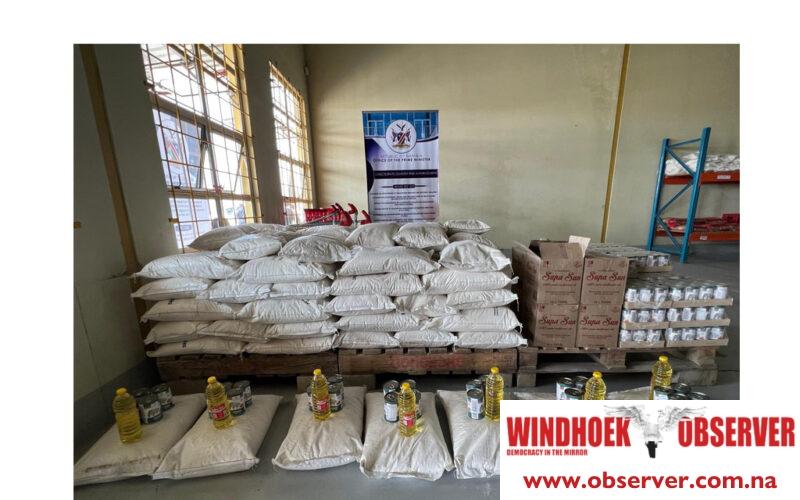Niël Terblanché
The country needs N$42 million for health and nutrition, specifically therapeutic food.
This is according to the June Drought Report, released by the Office of the Prime.
According to the report, approximately 1.4 million Namibians are facing severe food insecurity between July and September this year.
According to the report, the Namibian government requires over N$1 billion to provide adequate food assistance, but currently, only N$600 million is available. This is inclusive of logistical costs for transport.
The primary factors contributing to the food insecurity crisis include a prolonged drought and erratic rainfall, both of which have been below normal in recent years.
According to the report, these adverse weather conditions have severely impacted crop production and livestock conditions, leaving many households vulnerable.
The ongoing comprehensive nationwide drought programme driven by the OPM is currently assisting 341 855 households, including 33 105 marginalised households and 1 835 households with malnutrition cases.
Each household receives a food basket containing a 20kg bag of maize meal, four 400g tins of fish, soya mince, and a 750 ml bottle of cooking oil.
In response to the drought, the government has also allocated N$100 million from the 2023/24 Drought Relief Programme budget to address water needs across the country, especially in areas with critical shortages for both human and livestock consumption.
According to the report, ongoing water provision projects include the Onamatanga Pipeline, the Ohamaremba and Okanguati pipelines, and the Ozondati-Omatjete Water Supply Scheme.
The livestock support program, which includes marketing incentives, grazing leases, and transport subsidies, is also an important component of the relief efforts.
The report states that farmers in hard-hit regions such as Omaheke, Kharas, and Hardap are actively participating in the livestock marketing incentives by selling their livestock to cope with the drought.
On 22 May, President Nangolo Mbumba declared a national state of emergency, underscoring the severity of the drought crisis.
According to the report, the comprehensive Drought Relief Programme, which runs until June 2025, encompasses food assistance, seed and horticulture provision, livestock support, and water provision.
The report states that the financial implications of the drought relief measures are substantial.
The estimated cost of the current drought relief programme is N$1.3 billion, with significant gaps remaining in the available funds.
While the government has mobilised N$830 million, there is still a shortfall of N$482 million needed to fully implement the relief measures.
The report states that the situation calls for urgent attention and support from all stakeholders to mitigate the impact on lives and livelihoods.




